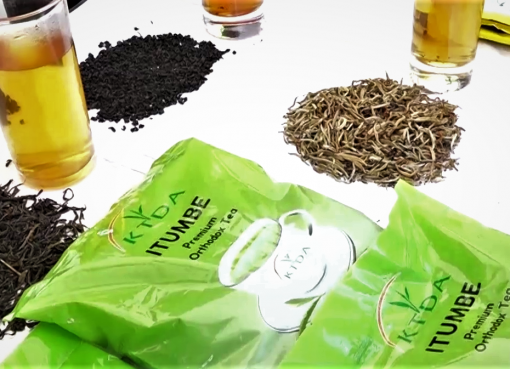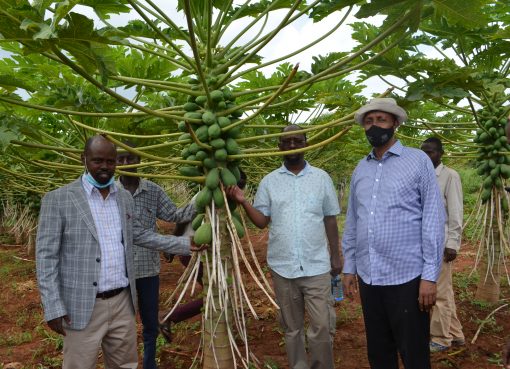Their beauty, color and demeanor makes them attractive to the handlers, most of whom tend to look at them as pets as opposed to income generators.
For a long time, commercial rabbit farming has not been embraced by many Kenyans despite nutritionists advocating for white meat.
In many parts of the country rabbits have perennially been considered pets for young boys who keep them in their homestead with little help or attention from other family members.
This could help explain why many people, Kiambu residents included, shy away from engaging in rabbit farming though the venture could earn them a lot of money.
Robert Korir a farm manager at the demonstration farm at the Kiambu Institute of Science and Technology (KIST) confirms that business people from Kiambu have not fully exploited the value of rabbit meat.
“The meat produces good stew, samosas and can be served as mshikaki (roast meat bites) during occasions,” Korir noted.
He told KNA on Sunday during the routine preparation of the farm in readiness for a field day slated for June 2018 rabbit meat customers travel all the way from neighboring County of Nairobi to purchase it.
Korir said the meat goes for Sh. 400 per kilogram which was quite affordable as his clients have never complained. “A doe, (female rabbit) gives birth to between seven and eleven bunnies per delivery. It has to feed on one as it nurses the others which always mature within three months,” he added.
After delivery, he said the mother breastfeeds the young ones for 26 days after which he relocates them to another more spacious shed to enable them feed more comfortably. “After the relocation, the doe can be reunited with the buck (male rabbit) for mating,” he explained.
Interviewed separately, a Farm Manager at Paradise lost farm situated along Kiambu-Nairobi road, Amos Waweru, while concurring with Korir, said that rabbits were easy to keep and rarely fell sick.
Waweru said it was possible to make good money out of the venture if one had little space and utilize it maximally.
“Rabbits grow very fast especially if fed well; reaching maturity at three months. One can easily feed their rabbits with kitchen waste materials, grass, plant leaves and rabbit pellets,” he added
Waweru said the feeds ensured that the animals got all the necessary nutrients so that they can reproduce fast “for the farmer to be smiling all the way to the bank more often.”
The beauty with rabbits, he said was that unlike other livestock, they required less space. “Owing to limited space they can as well be kept at the backyard so long as they are secured from other domestic animals that can prey on them like dogs,” he stressed.
He said rabbits start to breed at six to seven months and give birth after a month of gestation, with the doe producing up to 50 bunnies in a year.
“I sometimes make about Sh.7, 000 from a breeder rabbit,” he said adding a one to two months old rabbit cost about Sh.380, depending on the size and the breed.
“The most popular breeds used in the meat industry are the New Zealand white, Californian, Flemish Giants, French Ear Lop, Chinchilla and Dutch, he informed adding these breeds did well on the farm and he had ready market for them throughout the year.
Waweru said besides meat, rabbit skin and fur can be sold separately generating additional income to the farmer. “One of the breeds kept for fur is the Angola rabbit,” he said as he took the KNA team round.
Saying there was a high demand for rabbit meat in Kiambu and the country at large, the farm manager encouraged people to embrace rabbit keeping in their homes.
“Commercial rabbit farming in Kiambu can be a great source of income and can create employment to the many young people who complete school,” he said adding the meat is mostly sold in restaurants and hotels. It is served as an exotic dish and cost up to Sh.1, 000 per plate,” he noted.
He said that local butcheries sold the meat at Sh.300 a kilo and supermarkets up to Sh.500 per kilo, depending on their locations and clientele.
The two farm managers said rabbit droppings was very efficient as organic fertilizer and the farmer will hardly spend any money buying chemical fertilizers if they had enough of it.
The urine, they added could be used to spray on the farms to protect the crops from pests saving the farmer money they could have spent in buying pesticides.
By Lydia Shiroya/Mwihaki Wanjiru




